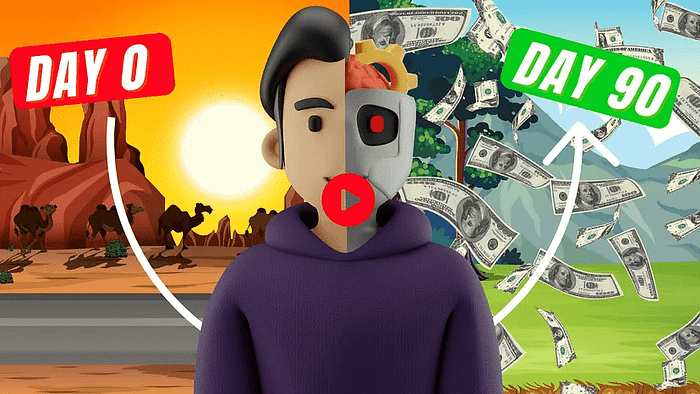Google SEO is DEAD: The Shocking Truth Unveiled
In a startling revelation, it’s become clear that Google SEO is DEAD. This seismic shift in the digital landscape has left marketers and business owners scrambling for alternatives. The once-reliable strategy of optimizing content for Google’s search engine has lost its effectiveness, forcing us to adapt or risk becoming obsolete.
As someone who’s spent over 15 years in the trenches of digital marketing, I’ve witnessed firsthand the rise and fall of countless strategies. But nothing could have prepared me for the monumental changes we’re seeing today. The death of Google SEO isn’t just a minor setback – it’s a game-changer that’s forcing us to completely rethink our approach to online visibility.
Let’s face it: algorithm updates have become more frequent and unpredictable than ever before. Websites with massive backlink profiles are dominating the search results, making it nearly impossible for smaller players to compete. And don’t even get me started on AI-generated content overviews that are pushing organic results further down the page.
We strongly recommend that you check out our guide on how to take advantage of AI in today’s passive income economy.
Table of Contents
The Decline of Google SEO
The writing has been on the wall for some time now, but many of us were too stubborn or hopeful to see it. Google SEO is DEAD, and here’s why:
1. Algorithmic Chaos
Google’s constant algorithm updates have turned SEO into a guessing game. One day, your website is riding high in the search results, and the next, it’s nowhere to be found. This unpredictability makes it incredibly difficult to build a stable, long-term strategy.
2. The Rise of the Giants
Websites with enormous backlink profiles, often owned by major corporations or media conglomerates, are dominating the search results. These digital Goliaths have resources that most businesses can only dream of, making it nearly impossible for smaller sites to compete.
3. AI-Generated Content Takeover
The proliferation of AI-generated content has flooded the internet with mediocre articles, making it harder for quality content to stand out. Google’s attempts to combat this have often resulted in collateral damage to legitimate websites.
4. Shrinking Organic Real Estate
With the increasing number of ads and featured snippets at the top of search results, organic listings are being pushed further down the page. This means less visibility and fewer clicks for websites that aren’t paying to play.
The Search for Alternatives
Now that Google SEO is DEAD, where do we turn? It’s time to explore new horizons and diversify our traffic sources. Here are some promising alternatives to consider:
Embrace Social Media Platforms
Younger generations are increasingly turning to social media platforms for their search needs. TikTok, Instagram, and other platforms are becoming go-to sources for information and product discovery. It’s time to shift our focus and build a strong presence on these platforms.
Invest in Content Marketing
While Google SEO is DEAD, content marketing is very much alive. Focus on creating high-quality, engaging content that provides real value to your audience. This approach can help you build a loyal following and attract organic traffic from various sources.
Explore Paid Advertising
With organic reach becoming more difficult, paid advertising can help you get your message in front of the right audience. Platforms like Facebook Ads and Google Ads offer sophisticated targeting options that can deliver impressive ROI when used effectively.
Leverage Email Marketing
Building and nurturing an email list can provide a stable source of traffic and conversions. Unlike SEO, email marketing gives you direct access to your audience without relying on third-party algorithms.
The YouTube Revolution
While Google SEO is DEAD, its sister platform, YouTube, is thriving. With over a billion users and growing, YouTube offers a massive opportunity for businesses and content creators alike. Here’s why YouTube deserves your attention:
1. Explosive Growth
YouTube’s user base is expected to reach 1.1 billion in the next three years. This growth trajectory makes it an attractive platform for building an audience and driving traffic.
2. Engagement and Trust
Video content allows you to build a stronger connection with your audience. Seeing a real person deliver information can establish trust and credibility more effectively than text-based content.
3. Simpler Algorithm
Unlike the complex and ever-changing Google algorithm, YouTube’s algorithm is relatively straightforward. Focus on creating engaging content with compelling titles and thumbnails, and you’re well on your way to success.
- Less Competition
Many niches on YouTube are still relatively untapped, offering opportunities for early movers to establish themselves as authorities.
The Challenges of YouTube
While YouTube offers exciting opportunities, it’s not without its challenges. Here are some factors to consider:
1. Time-Intensive Production
Creating high-quality video content takes significantly more time and effort than writing articles. From scripting to filming and editing, the process can be labor-intensive.
2. Skills Gap
Producing engaging video content requires a different skill set than writing articles. You’ll need to develop new abilities or hire talent to create compelling videos.
3. Platform Dependence
Remember, you don’t own your YouTube channel. The platform can change its rules or even shut down your channel at any time, potentially jeopardizing your business.
4. Monetization Limitations
While YouTube can be lucrative for some, it may not offer the same earning potential as a well-optimized website, especially in certain niches.
The Path Forward
So, what’s the verdict? Is it time to abandon ship now that Google SEO is DEAD? Not quite. The smartest approach is to diversify your efforts:
1. Maintain Your Website
While Google SEO is DEAD, having a website is still crucial for establishing credibility and providing a central hub for your online presence.
2. Explore Alternative Traffic Sources
Invest time and resources into social media, email marketing, and paid advertising to reduce your dependence on Google.
3. Embrace YouTube
Start building your presence on YouTube to tap into its growing user base and engage with your audience in new ways.
4. Focus on Quality Content
Regardless of the platform, creating high-quality, valuable content will always be a winning strategy in the long run.
5. Stay Adaptable
The digital landscape is constantly evolving. Stay informed about new trends and be ready to pivot your strategy as needed.
In conclusion, while Google SEO is DEAD, the opportunities for online success are far from over. By diversifying your approach and embracing new platforms like YouTube, you can future-proof your digital marketing strategy and continue to thrive in this ever-changing landscape.
Remember, the key to success in the post-Google SEO world is adaptability. Stay curious, be willing to experiment, and always put your audience’s needs first. The death of Google SEO may be the end of an era, but it’s also the beginning of an exciting new chapter in digital marketing.

We strongly recommend that you check out our guide on how to take advantage of AI in today’s passive income economy.




